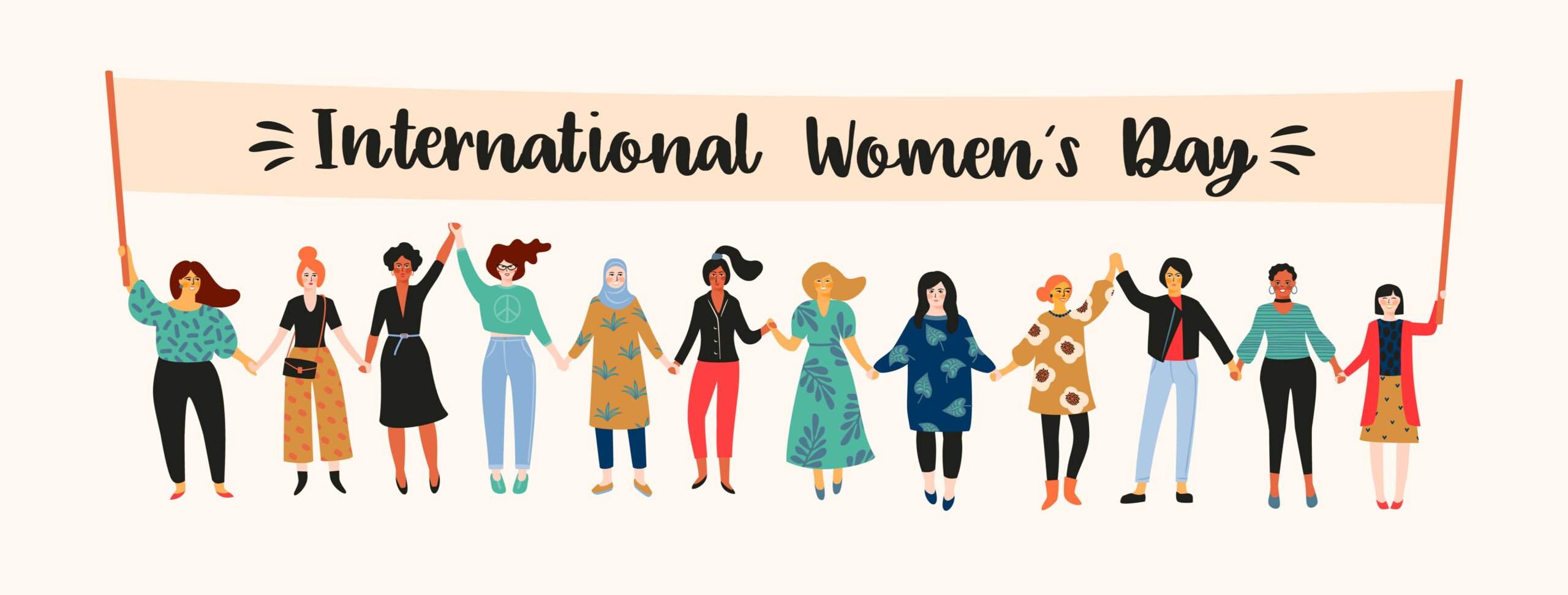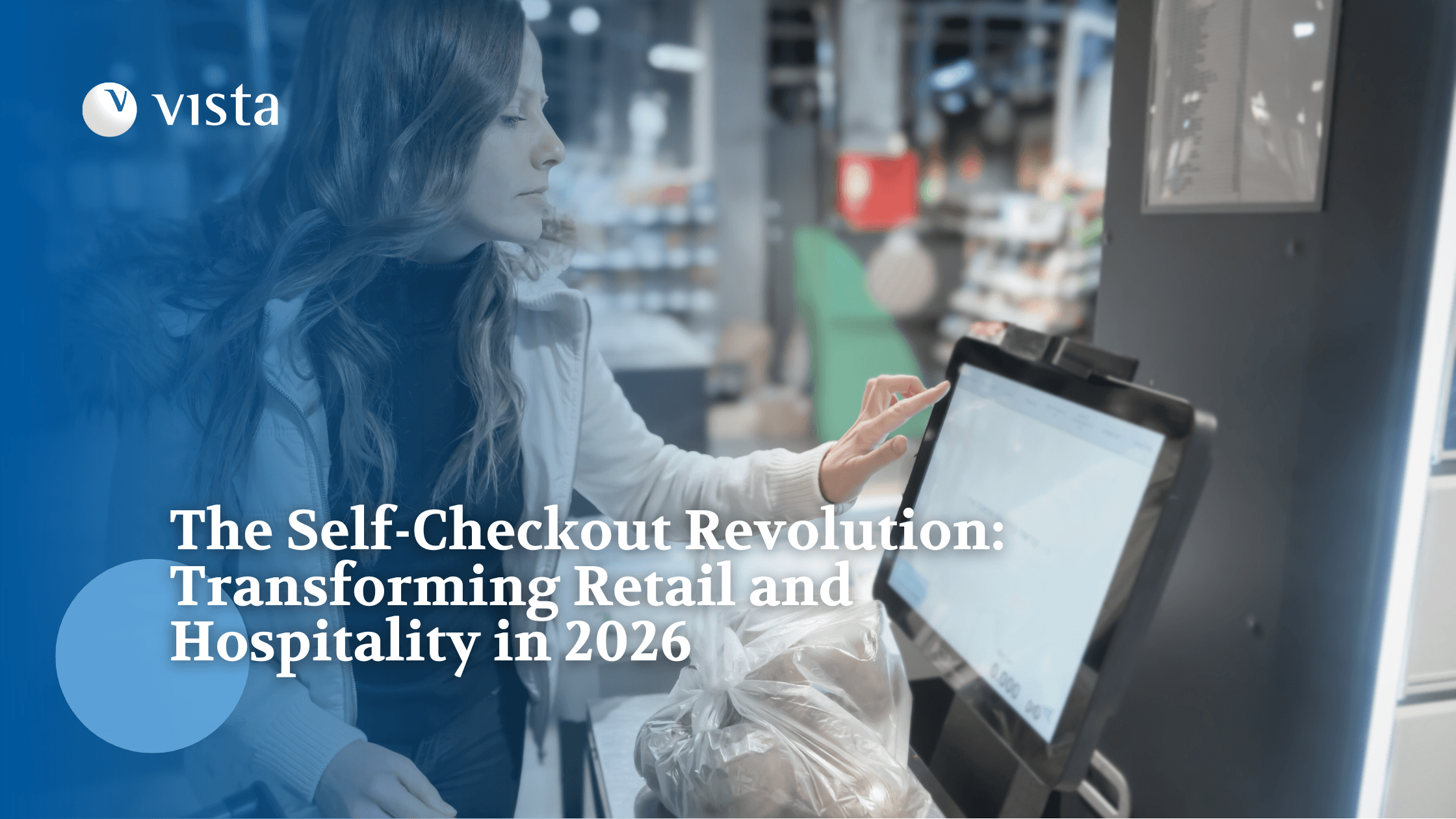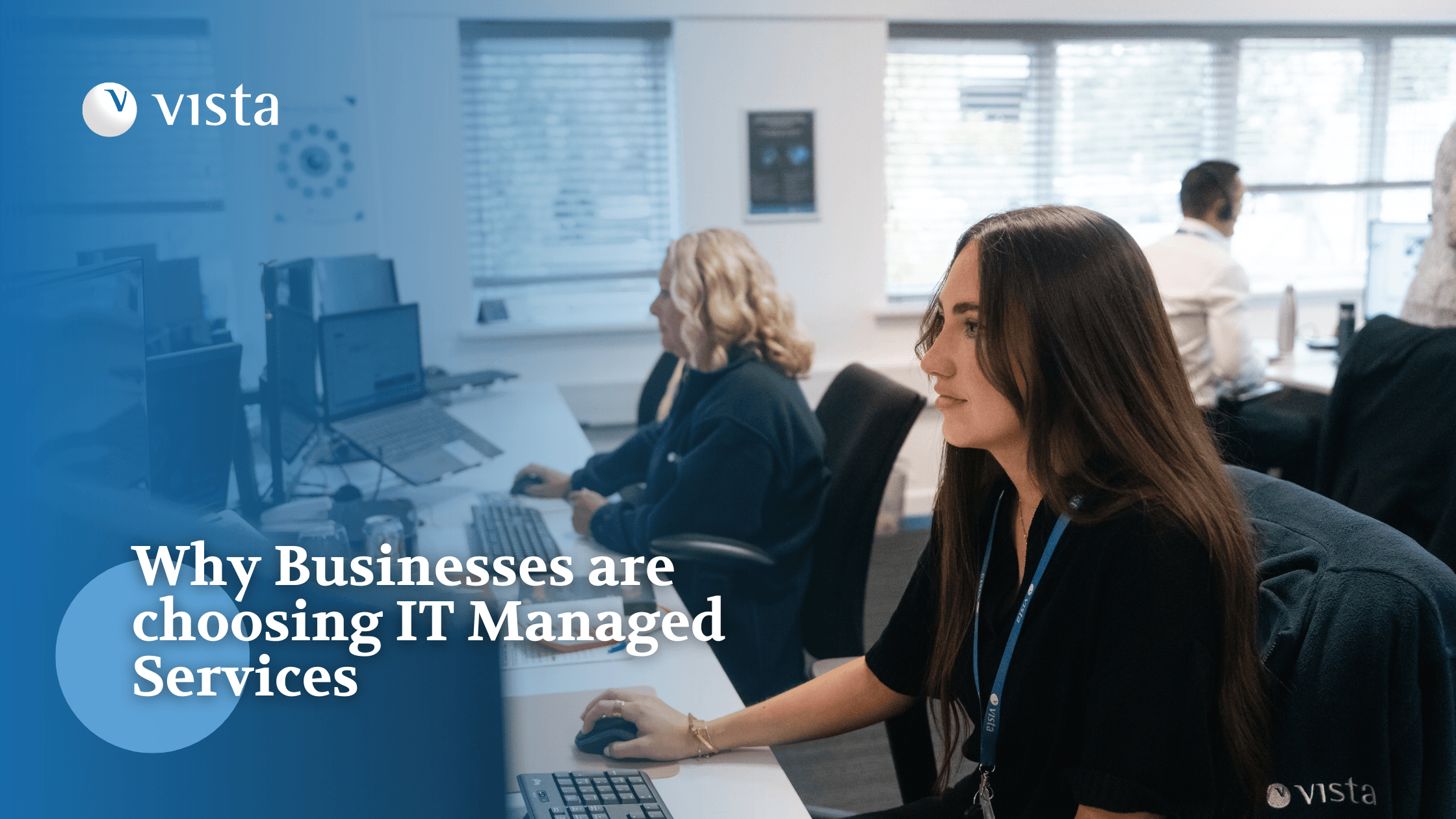
On 8th March, we joined the world as we celebrated International Women’s Day, recognising the amazing accomplishments achieved by women every day. To kick-start our celebrations, we caught up with our Commercial Director, Lucy Mayer-Page, and our Finance Director, Emily Rickus – two women in our leadership team who are integral to Vista’s growth and success.
We asked them about their experiences as successful leaders in the tech industry, who their female role models are, as well as what advice they have for women entering the workplace today.
Can you tell us about your current role?
Lucy: I am the Commercial Director at Vista. I am responsible for all commercial matters at Vista – from customer contracts and pricing to customer retention and relationships. My team includes Vista’s Account Director and Account Managers, Commercial Manager and Technical Solutions Manager. I also sit on the board of directors of Vista.
Emily: The role of Chief Financial Officer at Vista (a Private Equity backed business) is extremely diverse and very rewarding. No day is the same; there are always new opportunities and challenges which come with a growing company and I am always learning and developing with each new experience. A significant proportion of my role is the interaction with stakeholders including our Private Equity Investors, the bank, NEDs etc. From the financial side, there is responsibility of the team and accuracy of reporting but so much of the role is forward looking including defining and implementing the strategy, identifying and implementing improvements and facilitating growth through the use of data and financial information.
I spend 80% of my day in meetings (temporarily now mostly virtual), working very closely with the other directors and senior management team, as well as speaking with customers and suppliers. HR also falls under my remit and as a services business, we are only as good as our amazing employees, and we appreciate the great job they do. Vista has experienced a very successful sales period which has resulted in the business being awarded new contracts that have transitioned from competitors. This has meant I have had to get to grips with TUPE law for example, to manage that process, as well as being responsible keeping our employees happy and motivated. The Pandemic has created its own challenges in recent months but it has been incredible how everyone at Vista has come together, adapted to the world around us and this has resulted in growth, as well as a stronger business overall.
What motivates you as a leader?
Lucy: What motivates me most is seeing the positive impact on our business from the actions of my team, whether this be winning a new customer or some new business, retaining a contract, solving a problem for a customer or launching a new service. At the heart of Vista is great customer service; if we didn’t provide this we wouldn’t be successful and the account managers play a really key part in ensuring we maintain high service levels and foster great customer relationships. I also love to see the team enjoying their jobs and being motivated in the same way. It’s great to celebrate success when this is a team effort. Vista is a people business and we have a great culture. The standards are high and there is a strong work ethic, but at the same time we also have a very friendly and caring culture which is something quite special.
Emily: Seeing the strategy/plan come together and the resultant business growth. Seeing things change and improve as a result of deliberate strategic actions taken is a wonderful feeling. Also from the people side, feeding back where people are making a difference and developing talent is very rewarding. I think overall, feeling like I am positively contributing to the success of the business is the greatest motivator, and then feeding that back to others when they are too.
What’s your proudest achievement in your career to date?
Lucy: I think at the moment, this would be winning a significant amount of new business at the start of 2020 which happened to be in the grocery and convenient sector. The reason I highlight this is this meant that Vista actually grew during the period of lockdowns due to COVID-19 which has helped strengthen our business and also protect jobs.
Emily: Officially becoming an Executive Board Director aged 30 and then taking Vista through a Management Buy Out process during the first 12 months in the role. Completing that deal after so much work was a really proud achievement.
What women did you look up to as you progressed in your career?
Lucy: I started work in 1996 working for a large accountancy firm. At the time, women weren’t allowed to wear trousers to work! It’s unbelievable when you think back to those times. There were very few female role models to be honest. I don’t think there were any female partners in our office and the culture was very male. When I went on maternity leave in 2006 I did struggle when it came to female role models. I don’t think I had one! But the firm was actually very supportive and had some really good incentives such as generous maternity pay, childcare vouchers and part-time working. During the 2000s, it was notable that things were changing rapidly, and by the time I left in 2010 there were two female partners in our office and the Chair of the region was also a woman.
Emily: I trained at PwC which has a lot of strong women in senior positions who I learnt a lot from. When I joined Vista as the Financial Controller, a new Finance Director joined 12 months later and I really looked up to her and learnt so much from her. She had a huge impact on my career and confidence and is still with Vista as the Commercial Director currently. I learnt from these women that you can be yourself, lead in your own way and be successful. I also learnt that senior roles in finance do not involve sitting behind a desk crunching numbers, but getting out there in the business and making a difference across every department.
If you could invite three female guests to a dinner party, dead or alive, who would they be and why?
Lucy: Good question! OK, ignoring my nearest and dearest family members and friends and with my International Women’s Day hat on …… 1) Phoebe Waller-Bridge – mainly because she’s so talented and funny but also because she is transforming UK and international drama with her feminist characters and screenwriting; 2) Jacinta Ardern – because she always manages to say the right thing, even when dealing with some of the most difficult situations, and she was the first prime minister of New Zealand to have a baby whilst in office and 3) Dame Sharon White, Chair of John Lewis Partnership – mainly to hear her plans for transforming one of Britain’s best-loved retailers and, as an economist and now a retailer, where she thinks the high street is heading, but also to understand her personal story.
Emily: Jacinda Ardern (New Zealand President), Yvonne Pope Sintes (first female commercial pilot), Alison Brittain (CEO of FTSE 100 Company Whitbread). I find all of these very strong women, in very different eras and no doubt experienced a wide array of challenges to get to the top of their fields, but persevered and got there. I would love to discuss their journeys with them.
According to womenintech.co.uk, just over a quarter of the people working in STEM roles in the UK are female. What do you think we can do as a society to improve this number and inspire more females to take on a career in STEM?
Lucy: Another good question. I think this has to start at a young age. At home and in school we need to be careful not to foster gender stereotypes. We need to stop making STEM subjects sound “geeky” but rather make them cool. Young girls in particular generally want to fit in and don’t like to stand out from their peers. This may put them off pursuing an interest or career in a subject which is seen as geeky and male dominated. We need to make sure there are role models for young women to give them confidence that they can be successful in STEM subjects and to show them the benefits that success would bring them.
Emily: I think it takes a lot of time to get over the historic gender stereotypes of job roles but I have seen a vast improvement over the years and think it will continue to do so. I see it that the more people who get involved in these roles, and spread the word/are seen in these roles, normalises it so the younger generations coming through don’t see careers in STEM roles as more typically male roles, but just jobs for anyone. I think a lot needs to happen in schools, career advice etc. to re-enforce this. The media have a huge influence as well with how they cast roles in TV and films. This plays an important part in moulding the perception of the younger generations not just in STEM roles, but in any gender/race/age/background stereotypical roles, and breaking down those barriers.
How would you say Vista supports women in the workplace?
Lucy: I think the great thing about Vista is we don’t differentiate between men and women when it comes to filling roles or assessing people’s capabilities. We have two female executives out of three on the board. 40% of our senior management group is comprised of women. Half of my team is comprised of women. So we’re lucky that we don’t have to think about positive discrimination to balance things. We have a great HR function which makes sure we support everyone properly, whether that be maternity or paternity leave or providing flexible working hours to help parents who are juggling childcare.
Emily: Vista is an incredible workplace for women to work, and support all employees in the workforce equally. Both the Technology sector and Private Equity are traditionally male dominated industries but over 50% of our Executive Board are female and it really demonstrates there are no barriers. We also have women working across the business, including in the repair centre, warehouse, IT and technical desk. I am not of the mindset that “women are the best” and I am very much against any sort of positive discrimination too. I think the key is equality, and that the best person, regardless of any other factors, always get the job. I genuinely believe that variety on a board, in a senior management team and across a company including a mix of race, gender, ages, backgrounds etc. is important. It brings different outlooks, different ways of thinking and challenge and this facilitates success and growth of a company as demonstrated by Vista over recent years and the culture we have.
What advice would you give to other female professionals who are just starting out in their career?
Lucy: Find something you like doing and do it well because this will give you confidence. Be yourself – by this I mean understand your values and stay true to them, but also don’t be afraid to show some personality. Speak up and take credit for your actions. This doesn’t always come naturally to everyone. Be part of a great team – it’s rarely all about you so you need to surround yourself with good people.
Emily: Be yourself and lead in your way own way. I suffered terribly from Imposter syndrome for the majority of my career. I have always been ambitious and pushed myself, but would often feel nervous. This wasn’t due to how anyone around me treated me and in fact, was the opposite at Vista where I was always encouraged and supported to reach my potential. I just felt a lot more junior, less experienced, had a strong regional accent and probably had some sort of deep-rooted insecurity that I “didn’t look like a Finance Director/Chief Financial Officer” when in fact everyone around me didn’t even notice these things. It is a wonderful feeling that comes with confidence to realise that I may now still only be 35, still with a regional accent, still crack jokes, still get nervous in important meetings (and still a woman) – but it has no bearing whatsoever on my capability to do my job, and I am trusted and respected within my role. At the end of the day, it is talent, determination, and also an ability to get on with people, which seems to be the key to success – not gender, not background, not appearance, not age. So go after your goals and don’t let your own inhibitions or perceptions hold you back.
Also, a woman who has been very instrumental in my career once said “if people treated others like they treat themselves, most people would end up in prison.” It comes so easy to be your own biggest critic or to be really harsh on yourself for making a mistake, for getting nervous or for not knowing an answer. In reality, those around you realise that everyone is human, and it is ok to not be perfect. So please also, be kind to yourselves and think if someone else had done that, how would you feel about it. 9 times out of 10, it is far less of a big deal than you made out and beat yourself up over.
[sharethis-inline-buttons]


